Page 5
ttest: Interpretation of 2-Sample t Test
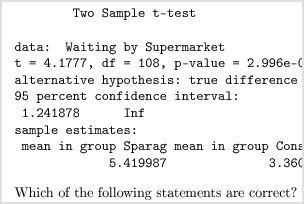
templates
Exercise template for assessing the interpretation of a randomly-generated 2-sample t test (including significance and type of alternative). Read More ›
tstat2: 1-Sample t-Test Statistic (Single-Choice)
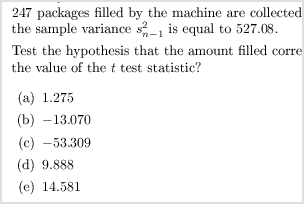
templates
Exercise template for computing the t-test statistic (single-choice) from given hypothesized mean and empirical mean and variance. Read More ›
tstat: 1-Sample t-Test Statistic
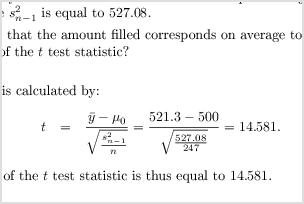
templates
Exercise template for computing the t-test statistic (numeric answer) from given hypothesized mean and empirical mean and variance. Read More ›
switzerland: Knowledge Quiz Question about Switzerland
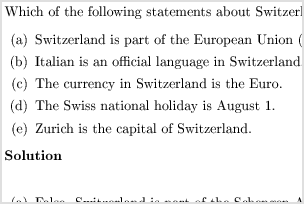
templates
Exercise template for a multiple-choice knowledge quiz question with basic shuffling of the alternatives. Read More ›
swisscapital: Knowledge Quiz Question about the Swiss Capital
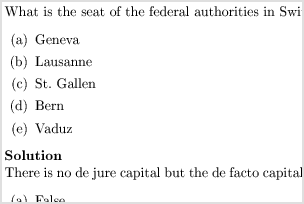
templates
Exercise template for a single-choice knowledge quiz question with basic shuffling of correct and false alternatives. Read More ›
scatterplot: Interpretation of a Scatterplot
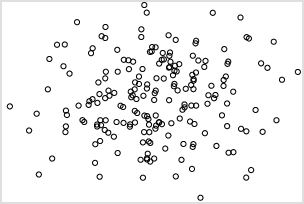
templates
Exercise template for assessing the interpretation of a randomly-generated scatterplot regarding the joint and marginal distributions. Read More ›
relfreq: Interpretation of Relative Frequency Tables
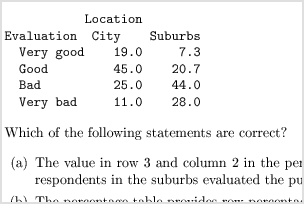
templates
Exercise template for assessing the interpretation of a table with relative frequencies where either total, row, or column frequencies are selected randomly. Read More ›
regression: Simple Linear Regression (by Hand)
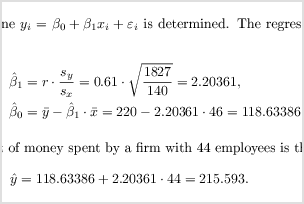
templates
Exercise template for computing the prediction from a simple linear prediction by hand, based on randomly-generated marginal means/variances and correlation. Read More ›
lm: Simple Linear Regression (with CSV Data)
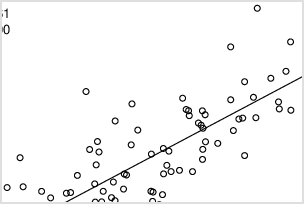
templates
Exercise template for conducting a simple linear regression based on a randomly-generated CSV file. Read More ›
lagrange: Method of Lagrange Multipliers
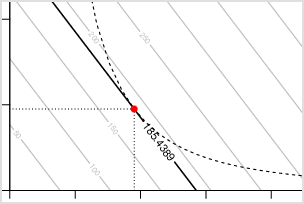
templates
Exercise template for minimizing a linear objective function with two arguments subject to a Cobb-Douglas-type constraint. Both the parameters of the functions and the exact question (argument 1 vs. argument 2 vs. function value in optimum) are drawn randomly. Read More ›